Hennepin Healthcare’s cultural navigators team
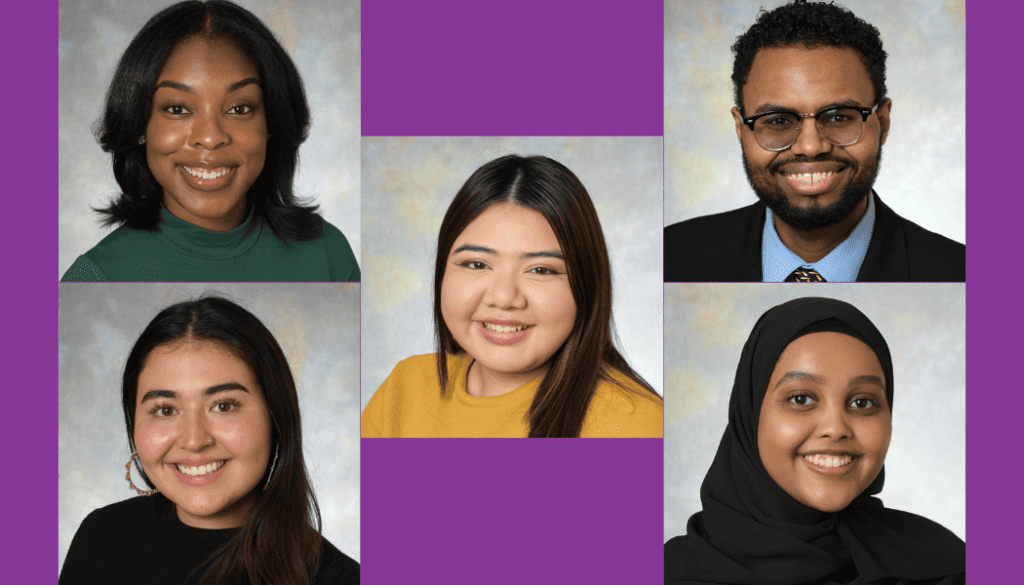
We welcome the members of the Health Equity Department’s Cultural Navigators team! Each Navigator brings an abundance of skills and background in working with communities.
Hennepin Healthcare approaches patient care and community engagement with a health equity framework to provide outstanding, equitable, and inclusive care to everyone in our community. Everyone on the patient and care team approaches their interactions through their cultural lens. Understanding this and meeting each other halfway—with education and empathy—is a significant step to improving patient care.
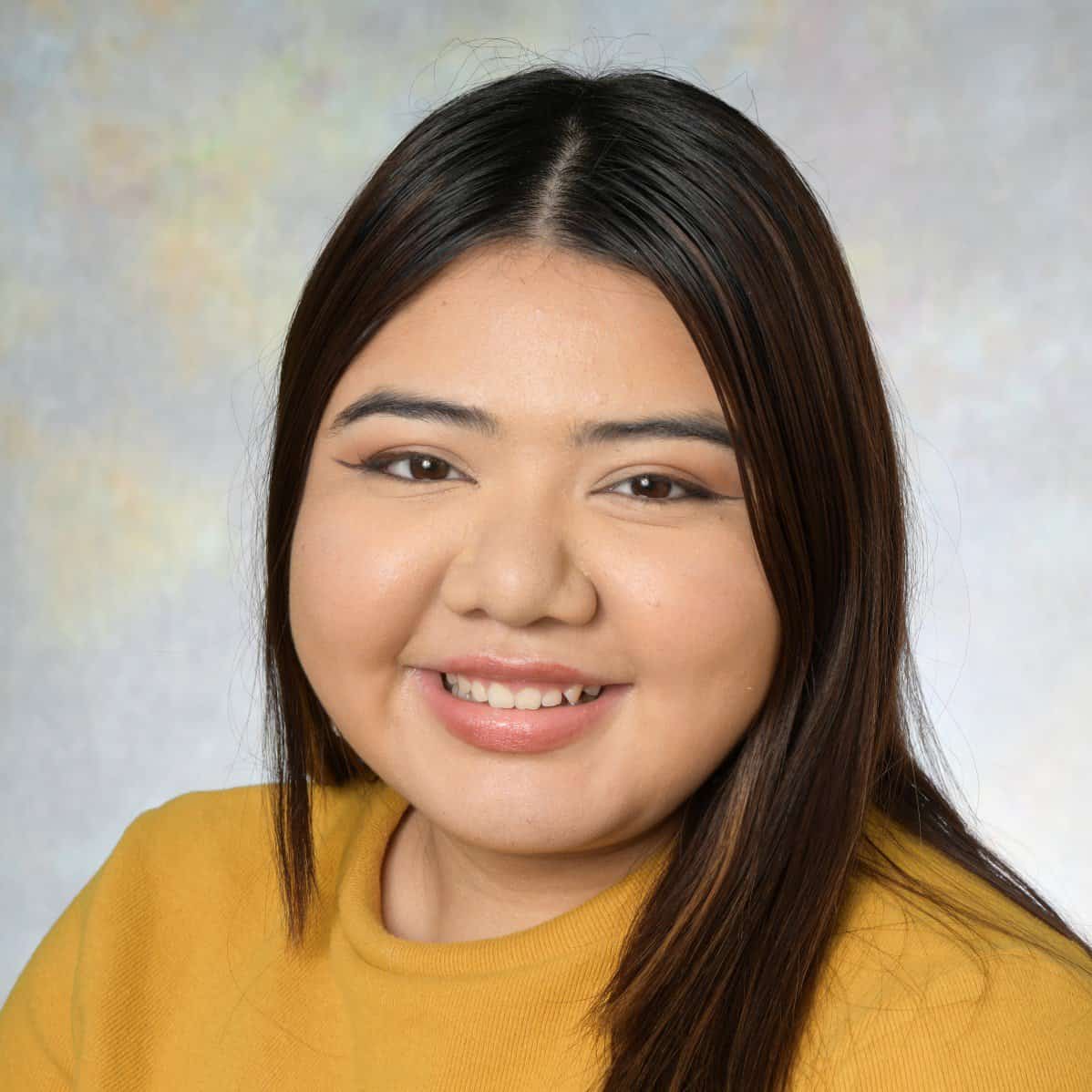 Ashley Toledano-Solis was born and raised here in Minnesota to Mexican immigrants. She has lived in Mexico, Guatemala, and Nicaragua, where she immersed herself in her culture and other LatinX cultures. She has been actively involved with the LatinX community through various types of work at different Minnesota-based organizations regarding changes in policies for voting rights, education bills, driver’s licenses for all, immigration policies, and equal access to healthcare. She joined the Health Equity team as the LatinX Cultural Navigator in December 2022.
Ashley Toledano-Solis was born and raised here in Minnesota to Mexican immigrants. She has lived in Mexico, Guatemala, and Nicaragua, where she immersed herself in her culture and other LatinX cultures. She has been actively involved with the LatinX community through various types of work at different Minnesota-based organizations regarding changes in policies for voting rights, education bills, driver’s licenses for all, immigration policies, and equal access to healthcare. She joined the Health Equity team as the LatinX Cultural Navigator in December 2022.
“I am excited to be serving my community, advocating for my community, and most importantly, empowering my community for their healthcare needs within and outside of Hennepin Healthcare. I am here to support my community and ensure their voices are heard. Also, how we define health is shown in the community.”
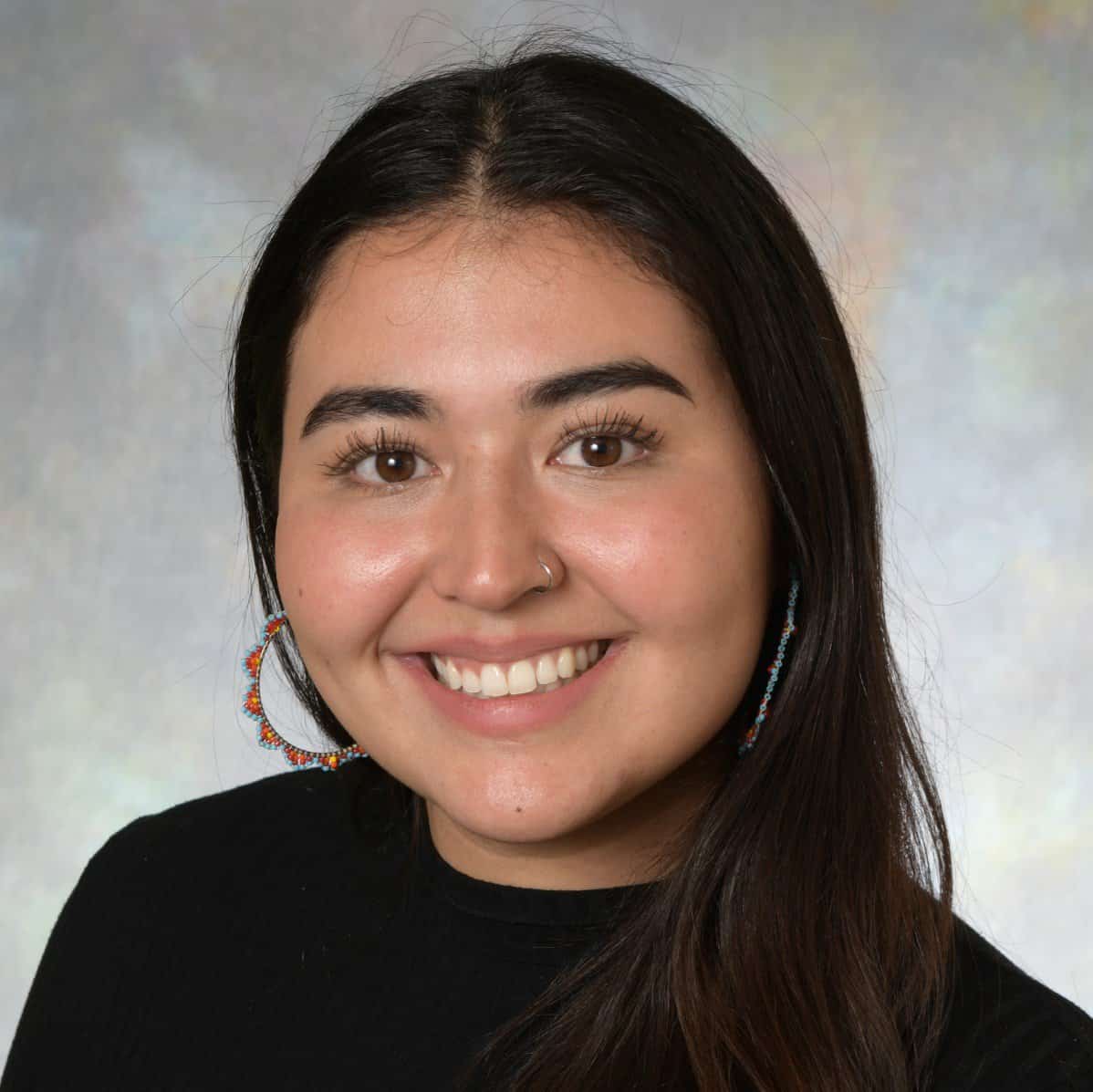 Gracen Mcdougall has been with Hennepin Healthcare for five months. Before joining Hennepin Healthcare, she worked in the American Indian community providing direct service to American Indian community members. Gracen’s experience of advocating, program development, and presenting in the community has allowed her to join Hennepin with solid relationships and connections that will firmly support her work here. Health disparities in the American Indian community have motivated her to work in health equity. Gracen aims to create a familiar atmosphere for American Indian patients by remaining present and working as a clear conduit of information between the team and the patients.
Gracen Mcdougall has been with Hennepin Healthcare for five months. Before joining Hennepin Healthcare, she worked in the American Indian community providing direct service to American Indian community members. Gracen’s experience of advocating, program development, and presenting in the community has allowed her to join Hennepin with solid relationships and connections that will firmly support her work here. Health disparities in the American Indian community have motivated her to work in health equity. Gracen aims to create a familiar atmosphere for American Indian patients by remaining present and working as a clear conduit of information between the team and the patients.
Gracen will develop relationships with tribal Indian Health Service facilities, ensuring that HHS patients from their reservations have stable plans. “I love the idea of growing our community to our state reservations. I hope we are recognized as a hospital system that will go the extra mile to include each patient, family, and cultural needs in their care planning. I see this work as wrapping a blanket around our people.” Gracen is excited to learn from the elders in this hospital and share information with staff. “Our [American Indian] people are ready to receive genuine care steered by the reality of moving toward equity. It is beyond time for our community to receive the respect we have historically had stripped from us.”
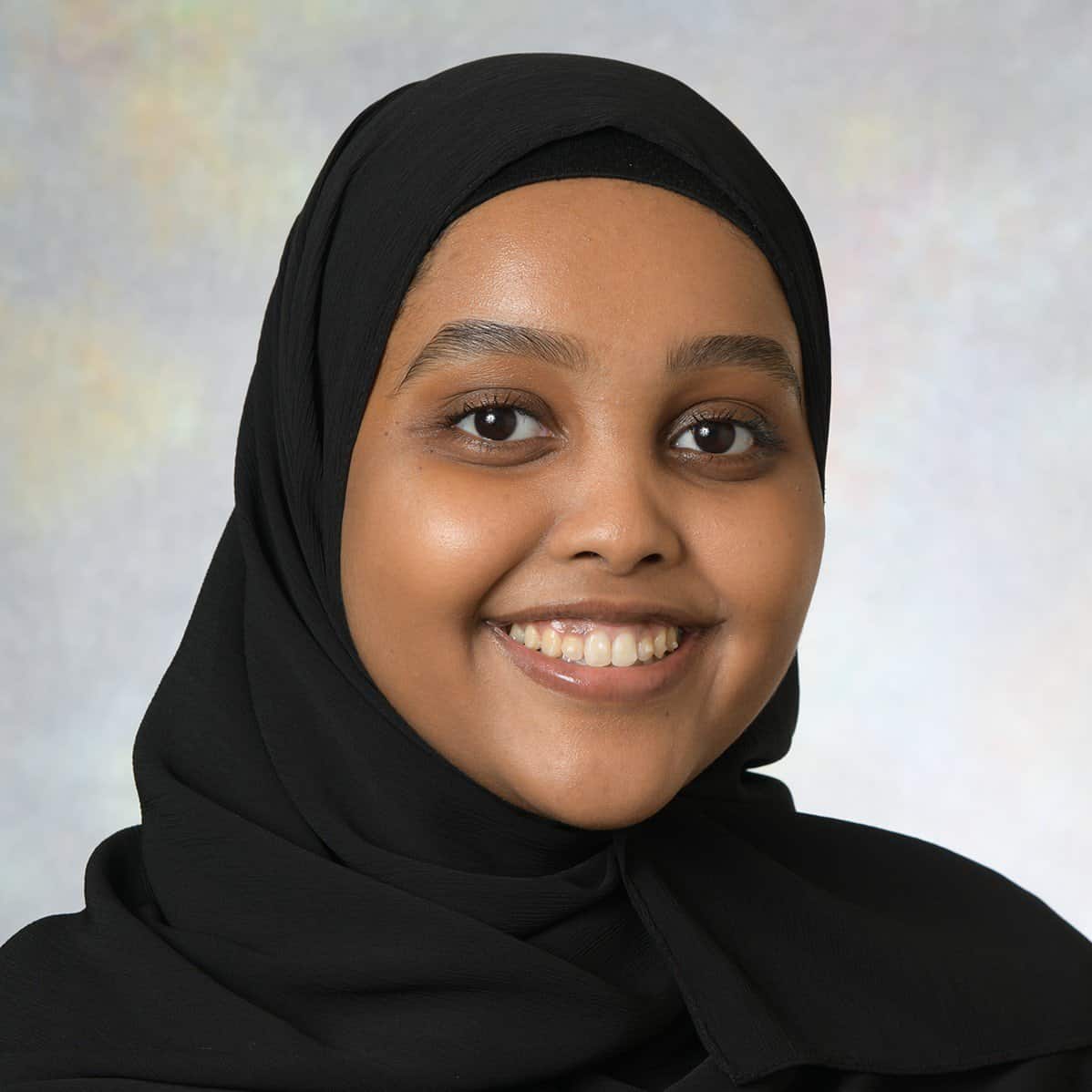 Ifrah Noor is the daughter of immigrants who emigrated from Somalia in the early 1990s. She joins us at Hennepin Healthcare as the Somali Female Cultural Navigator. She has an educational background in Health Services management, leadership, and social justice. She is excited to serve the Somali community to integrate Somali culture and customs into care plans to reduce cultural and socio-economic barriers in healthcare. She will help assure Somali women’s cultural needs are reflected in their healthcare services. From ensuring the proper hijab is available to having open conversations surrounding mental health without feeling fearful.
Ifrah Noor is the daughter of immigrants who emigrated from Somalia in the early 1990s. She joins us at Hennepin Healthcare as the Somali Female Cultural Navigator. She has an educational background in Health Services management, leadership, and social justice. She is excited to serve the Somali community to integrate Somali culture and customs into care plans to reduce cultural and socio-economic barriers in healthcare. She will help assure Somali women’s cultural needs are reflected in their healthcare services. From ensuring the proper hijab is available to having open conversations surrounding mental health without feeling fearful.
“I am here to ensure that how we define health as a community is shown in the care we receive! This work is so important for my community because it’s crucial to have someone who understands the Somali culture and language that can help bridge the gap between Somali patients and their care teams. It’s also important that they have a representation of someone who looks just like them and is there to sympathize and empathize with them during difficult situations.”
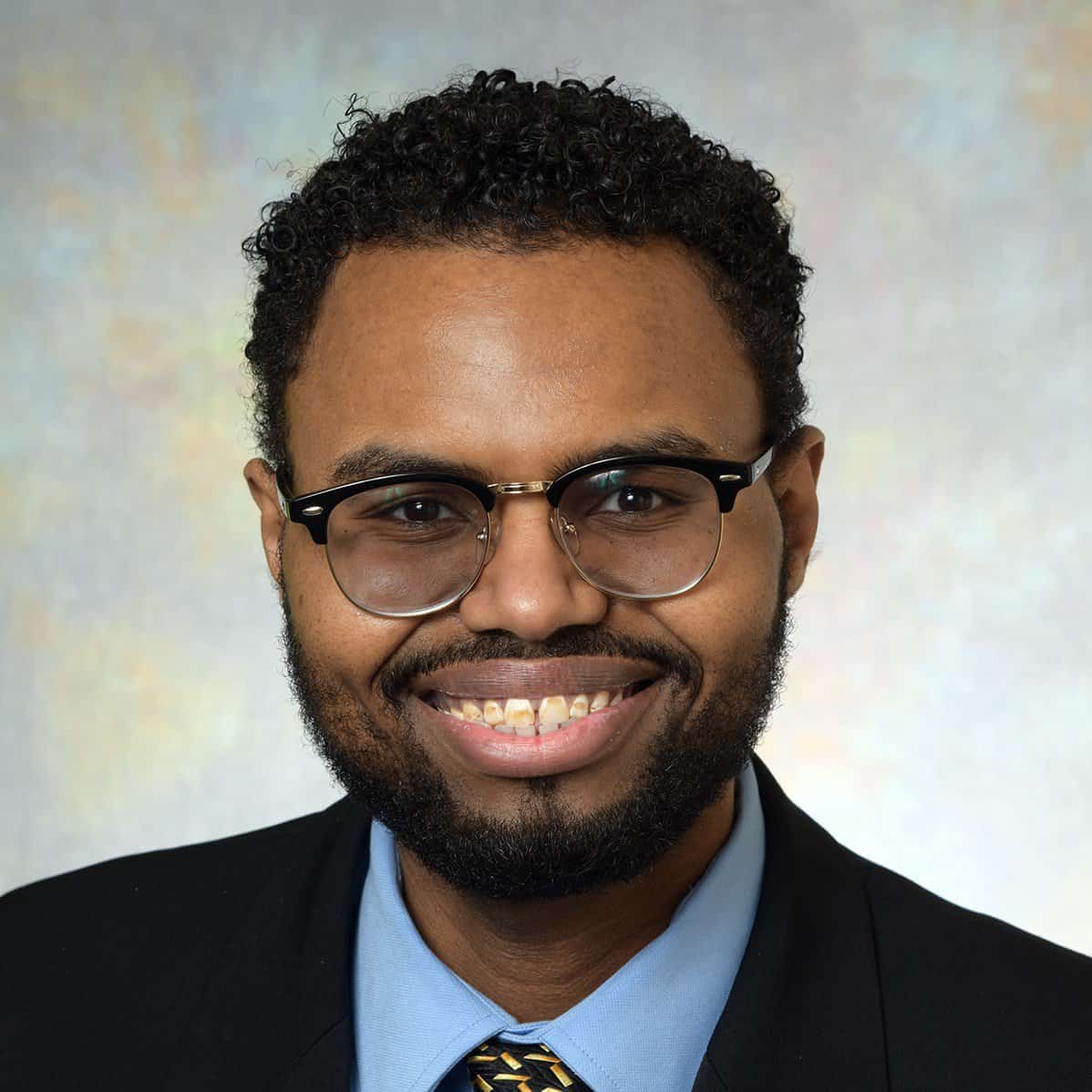 Mohamed Isse Mohamed is the Somali Male Cultural Navigator. He immigrated to the U.S. in 2007 and grew up in the Hennepin County Somali Community. Mohamed has previously worked with the Islamic Civic Society of America and joined us at Hennepin Healthcare in February. He is ready to continue making a positive impact on the patients of his community. As the Somali Male Cultural Navigator, he will support the care teams to ensure Somali Male patients feel welcomed, represented, and appreciated. To ensure their concerns are heard and that Somali Men have a safe and trustworthy space to discuss their health issues. For example, providing a safe space to discuss prostate cancer and early detection tactics and providing resources to empower Somali men about mental health in the community and its impact.
Mohamed Isse Mohamed is the Somali Male Cultural Navigator. He immigrated to the U.S. in 2007 and grew up in the Hennepin County Somali Community. Mohamed has previously worked with the Islamic Civic Society of America and joined us at Hennepin Healthcare in February. He is ready to continue making a positive impact on the patients of his community. As the Somali Male Cultural Navigator, he will support the care teams to ensure Somali Male patients feel welcomed, represented, and appreciated. To ensure their concerns are heard and that Somali Men have a safe and trustworthy space to discuss their health issues. For example, providing a safe space to discuss prostate cancer and early detection tactics and providing resources to empower Somali men about mental health in the community and its impact.
“Above all, I am here to ensure that how we define health as a community is shown in the care we receive. We’re here to support you and make sure [their] voice as a Somali Man is heard.”
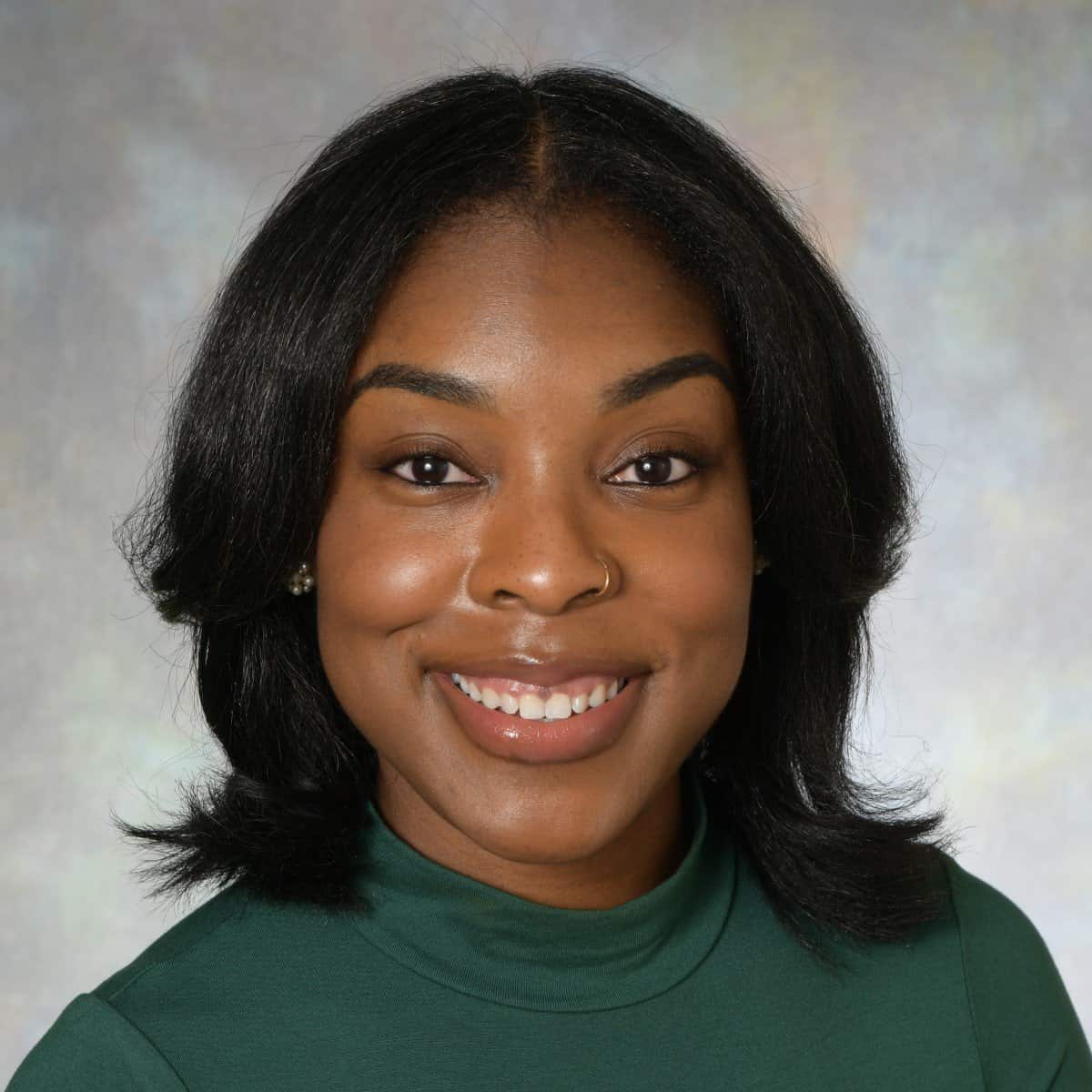 Sidney Johnson has seven years of experience working in healthcare, two of which are with the Hennepin Healthcare System and Research Institute. She began her journey championing Diversity, Equity, and Inclusion at Children’s Minnesota, doing patient-facing work and serving on the Nursing Diversity Collaborative Board. Her passion for health equity and building community has led her to the Cultural Navigator role. She understands the necessity to dismantle harmful care practices rooted in racism that has prevented the African American community from thriving. Sidney aims to ensure that all African American patients and families feel heard, respected, informed, confident, and empowered in their care. Sidney plans to do this by advocating for the needs of African American patients, developing spaces for providers and team members to honor and incorporate the needs of African American patients into their care, creating tangible resources and access points for African American patients, and providing support in building and maintaining the trust of the Hennepin Healthcare System.
Sidney Johnson has seven years of experience working in healthcare, two of which are with the Hennepin Healthcare System and Research Institute. She began her journey championing Diversity, Equity, and Inclusion at Children’s Minnesota, doing patient-facing work and serving on the Nursing Diversity Collaborative Board. Her passion for health equity and building community has led her to the Cultural Navigator role. She understands the necessity to dismantle harmful care practices rooted in racism that has prevented the African American community from thriving. Sidney aims to ensure that all African American patients and families feel heard, respected, informed, confident, and empowered in their care. Sidney plans to do this by advocating for the needs of African American patients, developing spaces for providers and team members to honor and incorporate the needs of African American patients into their care, creating tangible resources and access points for African American patients, and providing support in building and maintaining the trust of the Hennepin Healthcare System.
“I want the African American community to KNOW that their voices will be heard and respected at HHS. It is so important for patients, families, and the community to identify their specific wellness needs and have them reflected in their care. I love my community, and when my people are healthy, I am healthy.”
Who are the Cultural Navigators, and what do they do?
The Cultural Navigators bring a wealth of knowledge, collective resource connections, and experience with community engagement to the hospital. They will be integral members of the patient’s care team. While creating trusting relationships with patients and families, they will be available to assist colleagues with resources, care conferences, and navigating cultural needs and experiences.
For example—when an American Indian patient enters the hospital, Gracen will connect with them to ensure we’re meeting any specific cultural needs they might have during their hospital stay. Suppose the patient has a question or a cultural necessity. In that case, Gracen is the liaison to help their care team understand and meet their needs.
The Cultural Navigators are here to bridge cultural gaps between the patient and the care team. In addition, the Navigators will work to create spaces within their communities for patients, families, and community members to gather, find opportunities for health education and begin a trusting relationship with Hennepin Healthcare. With the Cultural Navigators program, we are providing “culturally competent and culturally responsive care that we need to give to patients… [patients are more] comfortable receiving care from someone who looks like them or if they have people who represent their culture and background to [help] advocate for them,” said Sidney.
What are the next steps for this team?
- The Cultural Navigators are working on resource guides specific to their patient community.
- The guides will be a resource for themselves, the patients, and the care team with information ranging from access to housing, and food, to culturally specific mental health providers in the community.
- In Spring 2023, the team will deepen community partnerships with organizations and clinics that serve their patients’ communities.
- They will learn from leaders about their community’s definition of health so we can engage patients in a way that serves their health needs. They will also provide space for health education around self-advocacy, what to expect, and how to prepare for a hospital visit.

